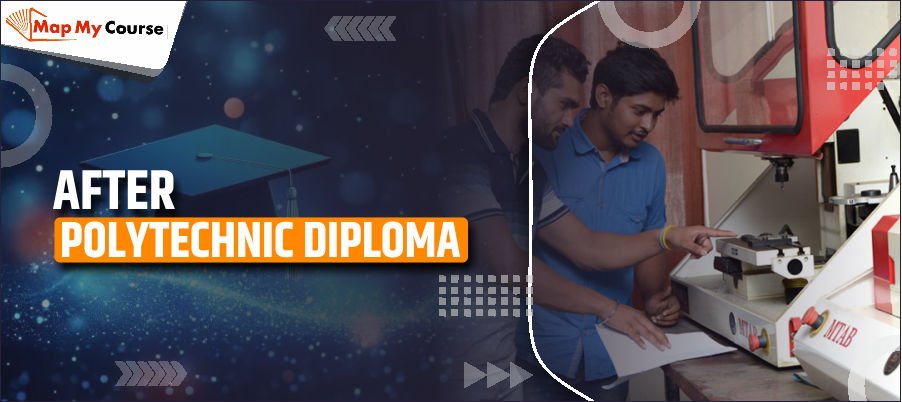So, you’ve been thinking about doing LL.M., but then you had a thought like, why not do it online? Well, if you’re in India and looking to level up your legal career, then you’re already in a right place! With like more universities offering flexible options, doing Distance Education in Law (LL.M.) with Specialization Options is honestly a smart move though!
And you know what’s even better? No boring lectures, no crazy schedules. You can learn from top colleges, just pick your dream specialization in LL.M, and still have that time to chill with a cup of chai.
In this blog, we’ll break down everything about Distance Education in Law (LL.M.) with Specialization Options—from course details and eligibility to career growth and job opportunities. So, let’s get in!
What Is Distance Education In LL.M?
Basically, distance education in LL.M. is just a way to do your law degree without going to college every day. You don’t have to follow a strict schedule or sit through long lectures you just need to study at your own pace from anywhere. It’s a great option for those working professionals or anyone who wants to upgrade their legal skills without putting other commitments on hold.
This course also comes with specialization options like corporate law, human rights, or intellectual property. More companies and law firms are looking for experts in these fields, making it a smart choice for career growth. Distance Education in Law (LL.M.) with Specialization Options helps in build the right skills and opens doors to many better opportunities in the legal world for you.
Key Highlights Of Distance LL.M
Distance education in law (LL.M) is perfect if you really want to build a career in law while studying from home. As this course helps you learn legal concepts and specialize in areas like Corporate Law, Criminal Law, and Human Rights. The best part is you can study without leaving your job and gain skills for better roles in law firms, companies, and government offices. Here are the course details of Distance Education in Law (LL.M.) with Specialization Options:
Degree Name | Distance Education in Master of legislative Laws (LL.M) |
Degree Level | |
Law specialisation |
|
Duration | 2 years |
Eligibility Criteria |
|
Fees | INR 6,000 to INR 2,50,000 (varies by universities) |
Distance Education In Law (LL.M) With Specialization Options
To be specialize in law but don’t have the right time for a regular classes? In distance LL.M. programs it let you build expertise in areas like Corporate Law, Criminal Law, Intellectual Property, and Human Rights while studying from home. These programs are designed for working professionals and students who need flexibility without compromising on quality education. Here are the course details of Distance Education in Law (LL.M.) that universities are providing with Specialization Options:
1. LL.M in Labour & Industrial Laws – Acharya Nagarjuna University
This course is all about making sure workers get fair treatment at their jobs. You’ll learn about employee rights, fair pay, and how companies should follow labour laws. If you’re someone who wants to help businesses follow the rules or stand up for workers, this is a great choice!
Course Name | LL.M in Labour & Industrial Laws |
Course Duration | 2 years |
Specialisation |
|
Fees | INR 36,640 |
2 LL.M in Constitutional & Administrative Law – Acharya Nagarjuna University
Thinking about how the government works and what rights people have? This course breaks it down for you! You’ll learn about the Constitution, how laws are made, and how policies affect everyday life. If you’re interested in politics, government jobs, or public service, this is a solid pick.
Course Name | LL.M in Constitutional and Administrative Law |
Course Duration | 2 years |
Specialisation |
|
Fees | INR 36,640 |
3 LL.M in Criminal Law – Acharya Nagarjuna University
If you love crime stories and want to understand how the law handles criminals, this course is perfect. You’ll study how investigations work, how courts handle criminal cases, and how lawyers defend or prosecute people. If you see yourself as a criminal lawyer or working in law enforcement, this is for you.
Course Name | LL.M in Criminal Law |
Course Duration | 2 years |
Specialisation |
|
Fees | INR 36,640 |
4 LL.M in Corporate & Securities Law – Acharya Nagarjuna University
Big businesses have a lot of legal rules to follow, and this course teaches you all about them. You’ll learn about company laws, stock markets, and financial rules. If you want to work with big companies, help them avoid legal trouble, or handle business deals, this is a smart career move.
Course Name | LL.M in Corporate & Securities |
Course Duration | 2 years |
Specialisation |
|
Fees | INR 36,640 |
5 LL.M in Business Law – Kakatiya University
Every company needs legal advice, and this course helps you understand business rules. You’ll learn about contracts, trade laws, and business deals. If you dream of working with companies, helping them grow legally, or even running your own business, this course is a great fit.
Course Name | LL.M in Business Law |
Course Duration | 2 years |
Specialisation | Business Law |
Fees | INR 46,000 |
6. LL.M in Intellectual Property Rights – Indian Institute of Correspondence Education (IICE)
This course is all about protecting ideas and creativity. You’ll learn how businesses keep their brand names safe, how artists and writers protect their work, and how tech companies secure their inventions. If you’re interested in law and want to work with music, books, inventions, or digital content, this course is a great choice!
Course Name | LL.M in Intellectual Property Rights |
Course Duration | 2 years |
Specialisation |
|
Fees | INR 1,20,000 to INR 2,00,000 |
7. LL.M in Environmental Law – National Law School of India University (NLSIU)
If you care about nature and want to help protect the environment, this course is for you. You’ll learn about laws that prevent pollution, protect forests, and promote sustainability. It’s a great option if you want to work with NGOs or push for strong environmental policies.
Course Name | LL.M in Environmental Law |
Course Duration | 2 years |
Specialisation |
|
Fees | INR 47,500 |
8. LL.M in Cyber Law – National Law School of India University (NLSIU)
The internet is full of scams, hackers, and online crimes. This course teaches you how to deal with cybercrimes, protect data, and handle online legal issues. If you’re into technology and want to specialize in internet laws, this is a great option.
Course Name | LL.M in Cyber Law |
Course Duration | 2 years |
Specialisation |
|
Fees | INR 57,000 |
Why Should You Go For An LL.M?
- You’ll Learn Advanced Legal Skills: you know the great thing about law in LL.M. is that it helps you go beyond basic law. You’ll gain in-depth knowledge in fields like Corporate Law, Criminal Law, and Human Rights, making you a legal expert.
- It’s Flexible: One of the best things about a distance LL.M. is that you can study when it suits you. No need to follow strict schedules, so you can manage your job, internship, or other commitments easily.
- No Work Experience Needed: Unlike some other advanced courses, an LL.M. doesn’t always require prior work experience. You can enrol right after your LL.B. and start specializing in your preferred legal field.
- You’ll build a Strong Network: Even though it’s an online course, you’ll still connect with experienced lawyers, professors, and fellow students. This can help you in your career later on.
- Better Job Opportunities: Having an LL.M. on your resume will make you stand out. It shows employers that you have specialized knowledge and are ready for higher roles in law firms, corporate companies, and government jobs.
- Practical Learning: Distance LL.M. programs include case studies and real-world legal scenarios, so you don’t just learn theory, you can learn how to apply it in real situations. This helps in handling complex legal cases.
Boosts Confidence: As you go through the program and gain new skills, you’ll feel more confident in your ability to deal with legal matters. It prepares you for leadership roles in the legal field.
Eligibility Criteria
- Educational Qualification: A Bachelor’s degree in Law (LL.B.) with at least 45% to 50% marks from a recognized Indian university. Some universities may have a relaxation in marks for reserved categories.
- Final Year Students: Candidates who are in their final year of LL.B. can also apply, provided they meet the required percentage of marks before admission.
- Entrance Exams: Most universities offer direct admission based on merit, but some may require entrance exams like CLAT-PG, AILET-PG, or university-specific tests.
- Work Experience (Optional): Although not mandatory, having 1-2 years of experience in legal practice, corporate law, or related fields can strengthen your application.
- Bar Council Recognition: Some universities may require the LL.B. degree to be recognized by the Bar Council of India (BCI).
Admission Process Of Distance Education In LL.M
Step 1: Find the Right University
First thing first check out the universities that offer a Distance LL.M. program. Visit their official websites and look at the course details, fees, specializations, and faculty. Compare a few options so you can pick the one that fits your career goals best.
Step 2: Fill Out the Application Form
Once you’ve chosen a university, go to their website and fill out the application form. You’ll need to enter your personal details, education history, and contact info. Double-check everything before submitting so there are no mistakes. Some universities might ask for a small application fee, so don’t forget to pay it on time.
Step 3: Submit Your Documents
You’ll also need to upload scanned copies of important documents like your LL.B. degree mark sheets, ID proof, and passport-size photos. If the university requires entrance exam scores, you’ll have to upload those too. Make sure everything is clear and valid to avoid any issues.
Step 4: Entrance Exam (If Needed)
Some universities might ask you to take an entrance exam, like CLAT PG or their own test. But don’t worry! Many universities offer direct admission based on your LL.B. marks. Just check the admission rules for the university you’re applying to.
Step 5: Confirm Your Admission
If you meet all the requirements, the university will send you an admission offer letter. To secure your seat, pay the first instalment of the fees before the deadline. Once that’s done, you’ll get a confirmation letter with details about your course schedule and study materials.
Top Industries And Organizations Hiring LL.M Graduates
Law Firms & Corporate Legal Departments
Big law firms and corporate companies in India are always looking for LL.M. graduates for roles in corporate law, mergers & acquisitions, and litigation. Some of the top recruiters are:
- Shardul Amarchand Mangaldas & Co.
- Cyril Amarchand Mangaldas
- AZB & Partners
- Khaitan & Co.
- Trilegal
Government & Public Sector Organizations
Government agencies and public sector companies hire LL.M. graduates for legal advisory, public prosecution, and regulatory compliance. Some major recruiters include:
- Supreme Court of India
- High Courts and District Courts
- Public Sector Banks (SBI, PNB, RBI)
- Oil and Natural Gas Corporation (ONGC)
- Securities and Exchange Board of India (SEBI)
International Organizations & NGOs
If you’re interested in working with human rights, trade, or global policies, these organizations offer great opportunities:
- United Nations (UN India Office)
- World Bank (India Division)
- International Labour Organization (ILO) – India Office
- Amnesty International India
- Oxfam India
Banking & Financial Institutions
Banks and financial organizations require LL.M. graduates for roles in financial regulations, compliance, and corporate legal advisory. Top employers include:
- Reserve Bank of India (RBI)
- HDFC Bank
- ICICI Bank
- Axis Bank
- Kotak Mahindra Bank
Technology & Cyber security Firms
With increasing cyber threats and data privacy concerns, tech firms are hiring LL.M. graduates specializing in cyber law and IT regulations. Some of the top recruiters are:
- Tata Consultancy Services (TCS)
- Infosys
- Wipro
- HCL Technologies
- Tech Mahindra
Media & Entertainment Industry
Legal experts are needed in the media sector for handling copyright laws, digital rights, and intellectual property regulations. Some top companies hiring LL.M. graduates are:
- Zee Entertainment
- Sony India
- Disney+ Hotstar
- Netflix India
- Times Group
Arbitration & Dispute Resolution Centers
Arbitration is a growing field in India, and many organizations hire LL.M. graduates for mediation and dispute resolution. Some key recruiters are:
- Indian Council of Arbitration (ICA)
- London Court of International Arbitration (India Chapter)
- International Centre for Alternative Dispute Resolution (ICADR)
- Singapore International Arbitration Centre (SIAC) – India Desk
- Delhi International Arbitration Centre (DIAC)
E-commerce & Start-up Companies
With start-ups and e-commerce businesses booming in India, legal professionals are required for compliance, business law, and contract negotiations. Some major recruiters are:
- Amazon India
- Flipkart
- Zomato
- Swiggy
- BYJU’S
Telecom & IT Regulatory Bodies
Telecom and IT regulatory bodies hire LL.M. graduates for legal compliance, IT law, and data protection roles. Some top employers include:
- Reliance Jio
- Bharti Airtel
- Vodafone Idea
- Telecom Regulatory Authority of India (TRAI)
- National Informatics Centre (NIC)
Academia & Research Institutions
For those interested in teaching and research, universities and law schools in India offer positions for professors, lecturers, and researchers. Some top institutions hiring LL.M. graduates are:
- National Law Universities (NLUs)
- Delhi University Faculty of Law
- Jindal Global Law School
- Symbiosis Law School
- NALSAR University of Law
You May Also Read Our Blogs
Last Words
That’s pretty much about it! So, if you’re really thinking about doing LL.M., it’s definitely a smart choice for you though. It gives you the flexibility to specialize in a field you love about while opening up great career opportunities in law firms, corporate companies, government sectors, and even international organizations.
Just to be make sure to pick a right university and specialization that matches your career goals & interest. Hope this blog helped clear things up for you!
FAQs
Q1. Who can apply for an LL.M. in India?
Ans:anyone who has completed an LL.B. degree from a recognized university can apply.
Q2. Is an entrance exam required for LL.M.?
Ans:Some universities ask for exams like CLAT-PG, but many offer direct admission based on LL.B. marks.
Q3. What jobs can I get after LL.M.?
Ans:You can work as a lawyer, legal advisor, professor, or in corporate law firms and government offices.
Q4. Can I do LL.M. while working?
Ans:Yes, many universities offer online or distance LL.M. programs that let you study while working.
Q5. How much can I earn after LL.M.?
Ans:Salaries vary, but fresh graduates can earn around ₹6-12 LPA, and experienced lawyers earn more.

















